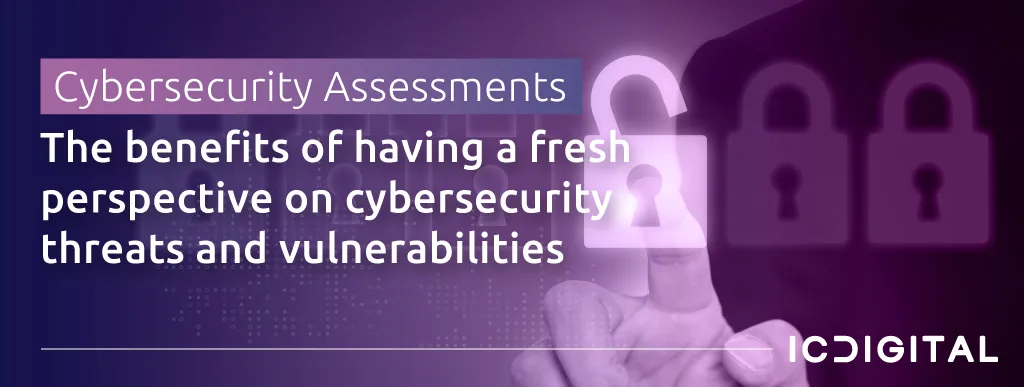
Cybersecurity assessments: The benefits of having a fresh perspective on cybersecurity threats and vulnerabilities

Introduction: The Importance of Cybersecurity in Modern Businesses
Cybersecurity has become a critical aspect of modern businesses, with the increasing reliance on technology and the internet. However, the number of cyber-attacks and data breaches has been rising every year causing businesses to lose billions of dollars.
As a result, businesses must take proactive measures to protect their valuable assets, including sensitive data and intellectual property.
Why Cybersecurity Assessments Are Necessary
Cybersecurity assessments are necessary for a variety of reasons. First and foremost, they provide a comprehensive and objective evaluation of an organization's security posture, which is essential for maintaining the integrity of valuable assets such as sensitive data and intellectual property. By conducting a cybersecurity assessment, an organization can identify potential vulnerabilities and risks, which can be used to develop a tailored cybersecurity strategy that aligns with the organization's risk appetite and objectives. Additionally, a cybersecurity assessment can help organizations to comply with regulatory requirements and industry standards, such as the General Data Protection Regulation (GDPR), UAE Personal Data Protection Law and the Payment Card Industry Data Security Standard (PCI DSS).
Improved Awareness:
A fresh perspective on cybersecurity threats and vulnerabilities helps organisations to stay informed about the latest cybersecurity trends and best practices. This enables them to better understand the potential risks they face and take appropriate measures to mitigate them.
Better Understanding of Weaknesses:
A thorough cybersecurity assessment identifies potential weaknesses in the organisation's security posture, including outdated systems and applications, misconfigured devices, and inadequate security policies. With this knowledge, organisations can take steps to improve their overall security posture.
Improved Incident Response:
With a fresh perspective on cybersecurity threats and vulnerabilities, organisations are better equipped to respond to incidents. This can include identifying the cause of an incident, assessing the impact, and determining the appropriate steps to take in order to minimise damage and prevent future incidents.
Increased Confidence:
Cybersecurity assessments provide organisations with a clear understanding of their security posture, which can increase confidence in their ability to protect sensitive information and systems. This increased confidence can also lead to improved customer trust and better relationships with partners and vendors.
Better Resource Allocation:
By identifying areas of weakness in their security posture, organisations can prioritise their cybersecurity efforts and allocate resources more effectively. This helps to ensure that resources are being used in the most efficient and effective manner possible.
Takeaway: Regular Cybersecurity Assessments are Vital for Protecting Sensitive Information and Systems
In conclusion, cybersecurity assessments provide a fresh perspective on the organisation's cybersecurity threats and vulnerabilities and play a vital role in maintaining the overall security posture of an organisation. Regular cybersecurity assessments help organisations to stay informed about the latest security trends, identify areas for improvement, respond effectively to incidents, increase confidence, and allocate resources more effectively. It is important for organisations to conduct regular cybersecurity assessments in order to ensure that their information systems and data remain secure and protected.
